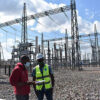Business
Insurers race for new energy deals
It is now 12 years since Uganda confirmed commercial deposits of petroleum in its territory and production is expected by 2022. Insurance companies have seen an opportunity here. NIC Holdings, NOVA Insurance and Jubilee Holdings are among those readying to cash in on Uganda’s growing energy sector.
NIC is committing USD 200m in insurance in the Oil and Gas sector and they can access another USD 500m from the Insurance Consortium of Uganda for the same.
Jubilee has put a USD 44m cover into Bujagali Power Plant. And NOVA has shown interest in the Oil and Gas Sector, although it is yet to declare how much cover it is ready to offer.
Dr. Martin Aliker, the Chairman NIC says the Oil and Gas Sector requires insurance at all levels – starting from the machines to the cleaners.
He said at NIC’s Annual General Meeting recently: “NIC Holdings is positioned to play a big role in the growing Oil and Gas Sector with the strengthening of its insurance capacity to the tune of USD 200m.”
Andrew Mutaawe, the head of the Oil desk at NIC said: “NIC is positioning itself to offer underwriting services. We are continuously developing our knowledge base of the industry.”
NOVA Insurance Chief Executive Officer Dr S.K. Jain said: “We are now focused to tap into unexploited sectors to cover large scale infrastructure, mining and construction projects but the firm is specifically eyeing Oil and Gas.”
The Insurance industry’s penetration in Uganda is 0.85% but, according to Jain, it is set to increase with the promising opportunities in the Oil and Gas sector.
What is insured in the Oil and Gas sector
The principle of insurance is about insuring anything with value. So, insurable are oil deposits as well as all products and processes.
“There are different classes of insurance cover. We insure the contractors’ risk, public liability, environmental concerns, the distribution of oil and gas and the pipelines,” Ibrahim Kaddunabi, the Executive Director of the Insurance Regulatory Authority of Uganda (IRA) said.
Cost of insurance to the oil companies
“When you examine the rates which we charge, they are significantly low because insurance works on the law of large numbers. Definitely there are so many oil wells from which oil will be drilled. And as you realize, even other countries within the region are discovering oil and gas,” Kaddunabi said.
He added: “The rates are arrived at professionally and I do not anticipate that everything combined may go beyond 10 percent of the entire value because the highest rate we have in the market is about 5 percent. So it will be manageable premium rates.”
Challenges for the Insurance industry in developing countries
A LLOYD’S 3600 Risk Insight study published in 2006, Exploring opportunities in Micro Insurance, says one of the challenges for insurance companies to penetrate markets in developing countries is that these countries don’t have the culture to save yet insurance walks on the baseline of saving.
And, according to Elias Edu, the Acting Managing Director NIC Holdings, the problem can be quite complex.
“There are many questions we need to ask: How do you sell insurance to someone who has never heard of the concept? How can you adjust claims in remote? And inaccessible parts of developing countries, and most crucially, how can you make any money from a policy where the premium is just a few dollars a year?” He says.
In developing countries Micro insurance has focused mainly on health and life. However, there is growing demand for agricultural products and farmers may need to scale up production which increases risks in farming. Insurance can increase the confidence of farmers as they target higher production.
Comments




















